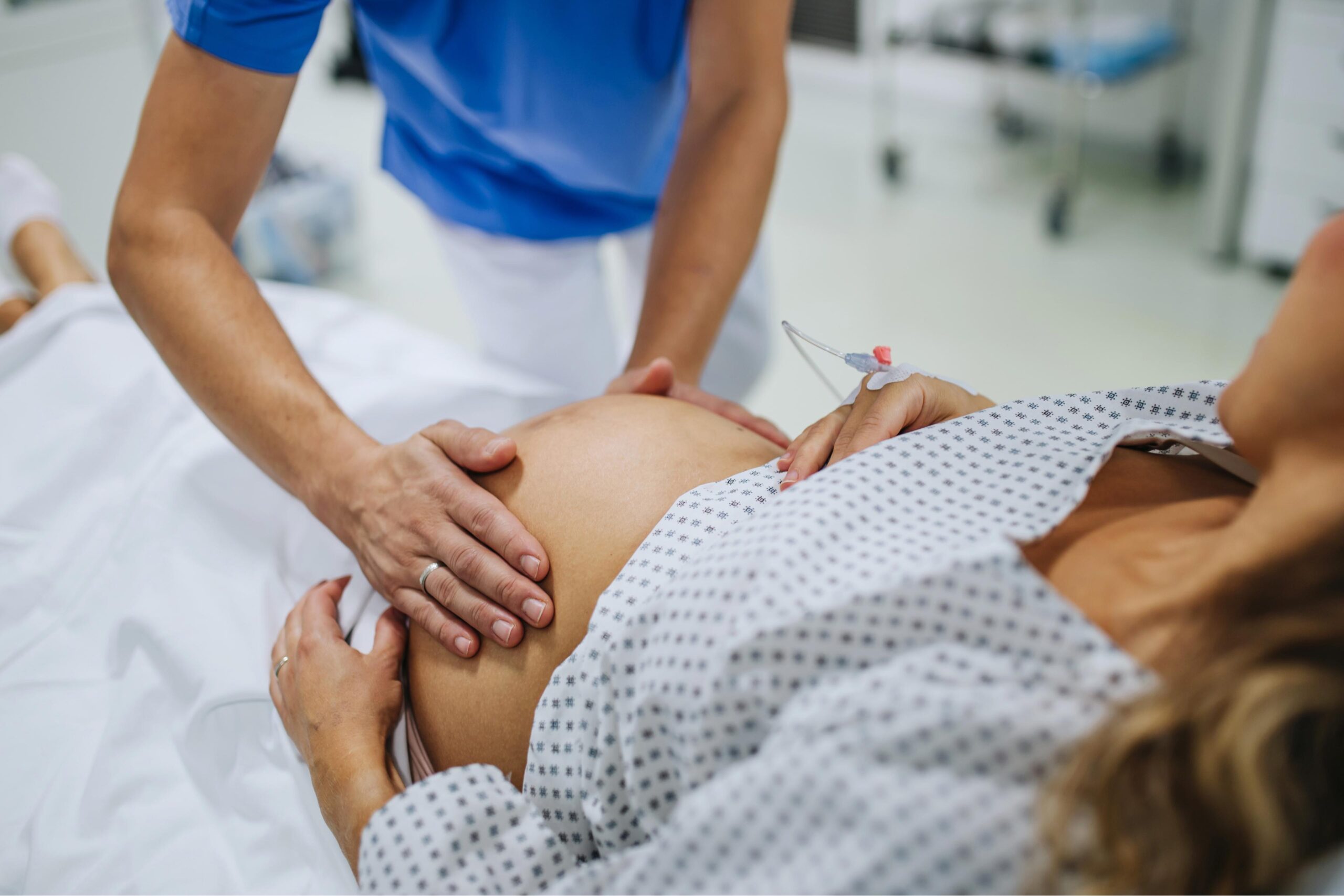Resources for PQC Professionals
The Missouri PQC is committed to improving the health and well-being of pregnant and postpartum people and babies throughout Missouri. Part of fulfilling that commitment is ensuring maternal health professionals and advocates have access to the educational resources and continuing education opportunities needed to broaden their knowledge, sharpen their skills and assist others in their own professional development.
Resources
It takes a team
If you’re passionate about delivering essential perinatal care to Missouri birthing people and babies, we invite you to see what resources are available and needed as we continue to grow our team statewide.
Mitigating the causes of maternal morbidity and mortality
The MO PQC is developing a series of twelve guidance resources intended to help mitigate the causes of severe maternal morbidity and maternal mortality. Each workbook provides evidence-based practices for improving care, a call to action to stakeholders in maternal and infant health, a hospital-level implementation guide, and additional resources for health care professionals and patients.
- Obstetric Hemorrhage
- OB Emergency Triage and Care
- Maternal Sepsis
- Substance Use Disorder
- Perinatal Mental Health Conditions
- Severe Hypertension in Pregnancy
- Preconception and Interconception Care
- Safe Reduction of Primary Cesarean Birth
- Oral Health in Pregnancy (Access the webinar recording and slides from the Oral Health in Pregnancy workbook webinar.)
- Postpartum Discharge Transition
- Fatal Injury and Injury Prevention
- Cardiac Conditions in Obstetric Care
The MO PQC is hosting a monthly webinar series highlighting the maternal health workbooks. More information and registration is available on the events page. (Tip: View events in the list view and filter by ‘workbook webinar’ in the event type dropdown to easily view and register for all of the webinars in this series.)
integrating doulas into clinical settings
Co-authored with eight doulas from Missouri, a guidance resource, Integrating Doula Care Into Clinical Settings, gives background on the roles of doulas and illustrates how health care facilities can work with doulas to improve maternal and infant health outcomes, address gaps in health care workforce, and enhance the birthing experience overall.
To learn more about integrating doulas into clinical care settings, please watch our webinar on doula services and integration and consult the associated slides.
Examining the causes and contributing factors associated with maternal mortality
The Missouri Department of Health and Senior Services published A Multi Year Look at Maternal Mortality in Missouri: 2018-2022 Annual Report on behalf of the state’s Pregnancy-Associated Mortality Review (PAMR) Board, a multidisciplinary board of experts from across the state tasked with examining the causes and contributing factors associated with maternal mortality and ultimately forming recommendations that could prevent these deaths from occurring in the future.
On average, 70 women in Missouri died while they were pregnant or within one year after their pregnancy each year from 2018 to 2022. The most deaths happened in 2020, with a total of 85 deaths recorded that year. From 2018-2022 (350 deaths total):
- The pregnancy-related mortality ratio (PRMR) was 32.3 deaths per 100,000 live births.
- The PRMR for Black women was 2.5 times the ratio of white women. This is a continued decline from the previous three reports.
- The PAMR Board determined that eighty percent of pregnancy-related deaths were preventable.
- Mental health conditions were the leading underlying cause of pregnancy-related deaths, followed by cardiovascular diseases.
- The PAMR Board determined that all pregnancy-related deaths due to mental health conditions, including substance use disorder (SUD), were preventable.
- Women living in micropolitan counties had the highest ratio of pregnancy-related deaths (38.7 per 100,000 live births).
MHA sponsors the Missouri Perinatal Quality Collaborative in association with Missouri DHSS. The MO PQC includes access to evidence-based initiatives, technical support, education and resources to support the reduction of severe maternal and infant morbidity and mortality. Quality improvement collaboratives, which align with key MO PAMR findings and recommendations, are deployed for more complex topics and are designed to result in highly reliable processes and improved care outcomes.
Frequently Asked Questions
Estimation of blood loss is a primary cause of delayed action that could prevent poor outcomes related to hemorrhage. EBL has been found to underestimate blood loss by 33% to 50%, especially when substantial amounts of blood are lost. Severe maternal morbidity in Missouri has increased by 21% since 2016 (Hospital Industry Data Institute, 2023). The greatest marker for severe maternal morbidity was transfusion (Missouri Department of Health & Senior Services, 2023). Quantification of cumulative blood loss guides providers in appropriately managing obstetric hemorrhage to decrease incidence of morbidity and mortality (Main et al., 2015).
For more information visit the Obstetric Hemorrhage Initiative.
Universal screening is NOT biologic testing of urine or other bodily fluids. Universal screening is the use of a validated verbal screening tool to assess an individual’s risk for substance misuse and/or SUD. Universal screening provides an opportunity for providers to identify substance use as early as possible, conduct a brief intervention and refer the individual to services to support recovery and achieve positive maternal-infant outcomes.
Reference: American College of Obstetricians and Gynecologists Committee Opinion #711.
For more resources visit the Care for Pregnant and Postpartum People with Substance Use Disorder initiative.
Informed consent is required for biologic specimen collection except in cases where a warrant or court order exists. Failure to obtain informed consent for specimen collection is a violation of an individual’s Fourth Amendment right, which protects them from unreasonable searches and seizures.
Read the full Supreme Court ruling.
Read the full Perinatal Urine Drug Testing Guidance or visit the Care for Pregnant and Postpartum People with Substance Use Disorder initiative for more information.
Cerebral vascular changes during pregnancy affect blood vessel lumens. The pressure to dissect a vessel is much less; thus, the BP considered an emergency (increased risk for stroke) is lower during pregnancy than for the average adult. Any systolic BP ≥160 or diastolic BP ≥110 that persists for 15 minutes or more is considered a medical emergency in a pregnant or postpartum person and should be treated as soon as possible, but no longer than 60 minutes from the time of the original severe BP. A first-line antihypertensive medication such as IV Labetalol, IV Hydralazine or PO Nifedipine (immediate-release) should be initiated as part of a severe HTN in pregnancy treatment algorithm until the BP is no longer in the severe range. Ideally, antihypertensive medications and magnesium sulfate should be given concurrently. However, if this is not achievable, antihypertensive medications should take priority.
References: Hypertensive Disorders of Pregnancy PowerPoint, Recording and California Maternal Quality Care Collaborative Improving Health Care Response to Hypertensive Disorders of Pregnancy Toolkit
View additional resources on the Severe Hypertension in Pregnancy page.
Home blood pressure monitoring during pregnancy and the postpartum period helps improve early recognition of worsening BPs over time and severe range BPs allowing for timely initiation of antihypertensive medications or dose adjustments. Home monitoring programs result in fewer hospital readmissions. Additionally, these programs show promise of decreasing immediate complications and reducing the risk of long-term impacts on cardiovascular health (Corlin et al., 2023).
Download additional resources on the MHA Cuff Kit Project page and the Preeclampsia Foundation website.
The American College of Obstetricians and Gynecologists recommends screening for perinatal depression and anxiety at the initial prenatal visit, later in pregnancy and at postpartum visits. Because perinatal mental health conditions are common, the “Lifeline for Moms Perinatal Mental Health Toolkit” recommends screening for depression, bipolar disorder, anxiety and posttraumatic stress disorder at the initial prenatal visit and screening for depression, anxiety and PTSD in the second half of pregnancy and during postpartum visits. For any response other than “never” on the self-harm question, further assessment of suicide risk is warranted. All pregnant and postpartum people should be screened for bipolar disorder prior to initiating an antidepressant because one in five birthing people who screen positive for depression could have bipolar disorder. Treating bipolar disorder with antidepressant medication increases the risk of mania, psychosis and suicide. Bipolar disorder is associated with an increased risk of postpartum psychosis, which is further associated with suicide and infanticide (Lifeline for Moms Perinatal Mental Health Toolkit).
Reference: Addressing Perinatal Mental Health Conditions in Obstetric Settings
Read more information on the Perinatal Mental Health Patient Safety Bundle page.
The American Academy of Pediatrics recommends mental health screenings be completed by pediatricians at well-child visits during the first year postpartum. Screenings should be completed within the first month and at two-, four- and six-month well-child visits to support the maternal-infant dyad. OB providers should be prepared to receive referrals from the pediatrician for postpartum people with a positive screen. Click the following links for more information.
References: Lifeline for Moms Perinatal Mental Health Toolkit and
Addressing Perinatal Mental Health Conditions in Obstetric Settings.
View more resources on the Perinatal Mental Health Patient Safety Bundle page.
Events
Opportunities to grow your skills and knowledge
See which programs and events we’re currently offering for those who support Missouri mothers and babies.
Initiatives
Putting practice to work where it matters most
The Missouri PQC is committed to providing easy access to programs that offer the kind of essential perinatal care mothers and babies need and deserve.

Severe Hypertension in Pregnancy
This initiative follows the AIM patient safety bundle of the same name.

Perinatal Mental Health Conditions
This initiative follows the AIM Patient Safety bundle of the same name.

Obstetric Hemorrhage
This initiative follows the AIM patient safety bundle of the same name.

Maternal-Infant Dyad Affected by Substance Use Disorder
Substance use disorder is a chronic disease that can have long-lasting effects on not only the birthing person and infant but also their family and community.
